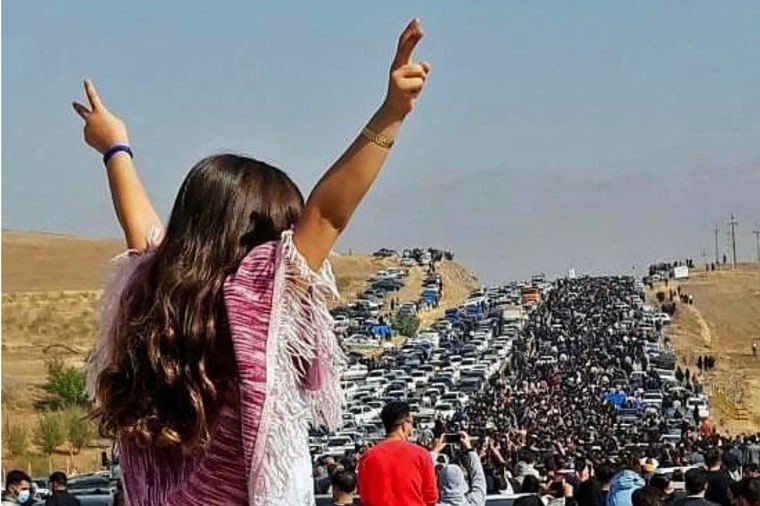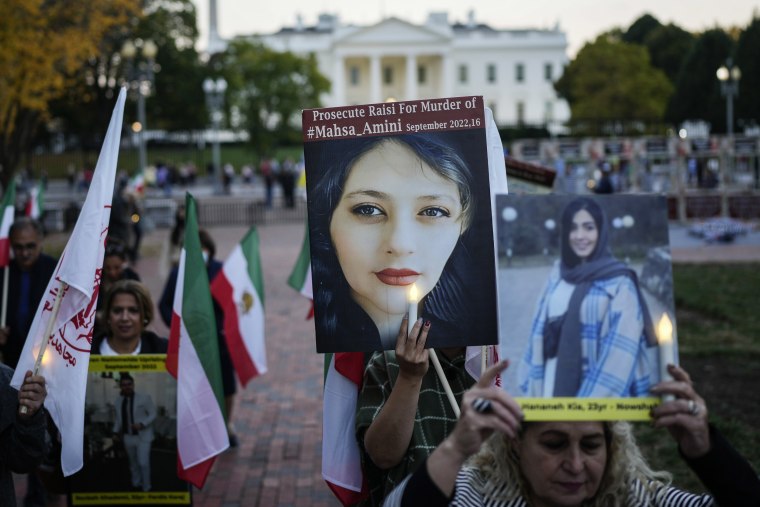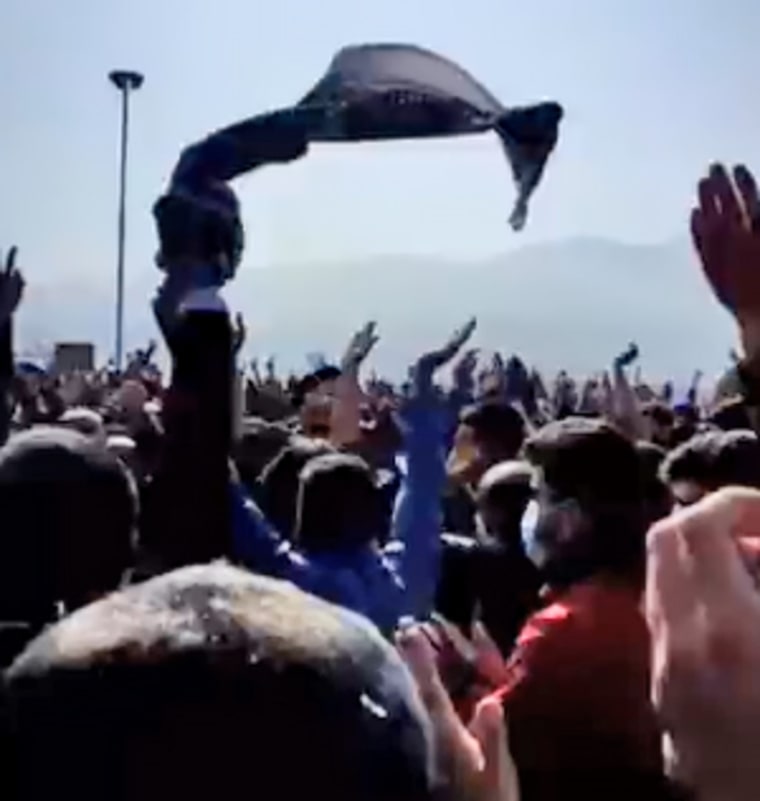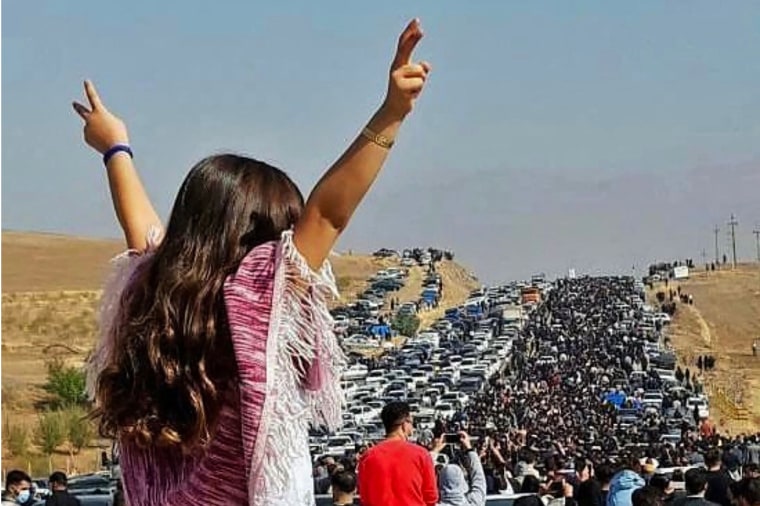Almost six weeks after the death of Mahsa Amini, the unrest in Iran shows little sign of abating.
Defying security forces, thousands marched to her grave in the northwestern city of Saqqez on Wednesday, as crowds clashed with security forces on the streets of the capital, Tehran, and several other major metropolitan areas.
On Thursday, the semi-official Fars news agency reported attacks on government buildings in the city of Mahabad, as one of the boldest challenges to the clerical leadership that has been in power since the 1979 revolution shows little sign of slowing down.
“The authorities are clearly nervous and shaken from the ongoing protests,” Arshin Adib-Moghaddam, a professor in global thought and comparative philosophies at SOAS University of London, told NBC News on Thursday via email.

“Any effort to shut down the legitimate right to mourn the death of an innocent civilian, was always likely to fan the flames of resistance even further,” he added.
Wednesday was 40 days since Amini’s death after she was detained by morality police last month. The 22-year-old from Iran’s northwestern Kurdistan region died in a hospital three days after she was arrested in Tehran for allegedly violating the Islamic Republic’s strict dress codes.
In the Islamic faith, the 40th day after a death marks the deceased’s soul passing from the earth to the afterlife. Friends and relatives often return to the gravesite to pay their respects and a special ceremony is held to mark the occasion.

Perhaps anticipating trouble, security forces put pressure on Amini’s family to issue a statement announcing that it would not go ahead with a ceremony and that her brother had been threatened with arrest, Hengaw, a group that monitors human rights violations in Kurdistan province, said in a statement. It added that police had blocked the roads leading to the cemetery in her home city of Saqqez.
NBC News could not independently verify Hengaw’s claims, but Fars reported that the internet in the region was subsequently cut off.
Thousands of mourners nonetheless made their way to the cemetery. One video posted to Twitter Wednesday and verified by NBC News shows a large crowd at the cemetery, jumping up and down and waving headscarves. “Freedom, freedom! Enough with the despotism,” they can be heard chanting.
A photo posted to social media on Wednesday and verified by NBC News showed a young woman standing on a car with her hands raised in the air and her headscarf removed, overlooking a long line of people.

Despite the crackdown by Iranian security forces, the protests have not lost momentum, said Ali Fathollah-Nejad, from the Issam Fares Institute for Public Policy and International Affairs, at the American University of Beirut.
“We have a dimension to these protests that spans classes and ethnicities that we haven’t had before. And there is also a mentality shift that people do understand that they are now going for revolution, they want to have a different system in place,” he said.
What began as protests about Amini’s death have rapidly widened and drawn many Iranians into the streets, with some calling for the downfall of the Islamic Republic and the death of Supreme Leader Ayatollah Ali Khamenei and President Ebrahim Raisi.
“When there is no democratic valve, there can only be a radical explosion,” said Adib-Moghaddam.
“Therefore, the current protests have moved from demands for reform to demands for systemic change. If reforms are made impossible, history has shown, any regime will be overcome by the people,” he added.
Women and young girls have been at the forefront of the anti-government protests, with videos showing them removing and burning their headscarves and cutting their hair in public, in open defiance of the cleric-run Islamic Republic.
The government has blamed what it calls “foreign enemies” for stoking the unrest.
A coroner’s report said this month that Amini died from multiple organ failure and ruled out blows to the head and body as a cause of her death. Police had said Amini died after she fell ill and slipped into a coma, but her family has said witnesses told them officers beat her.
Police have denied she was beaten.
The coroner’s report also said that because of an underlying health condition, Amini suffered a heart attack and could not be revived.
Her family has denied that she had a pre-existing condition.




